Haiti gang holding kidnapped diplomat for ransom
- Published
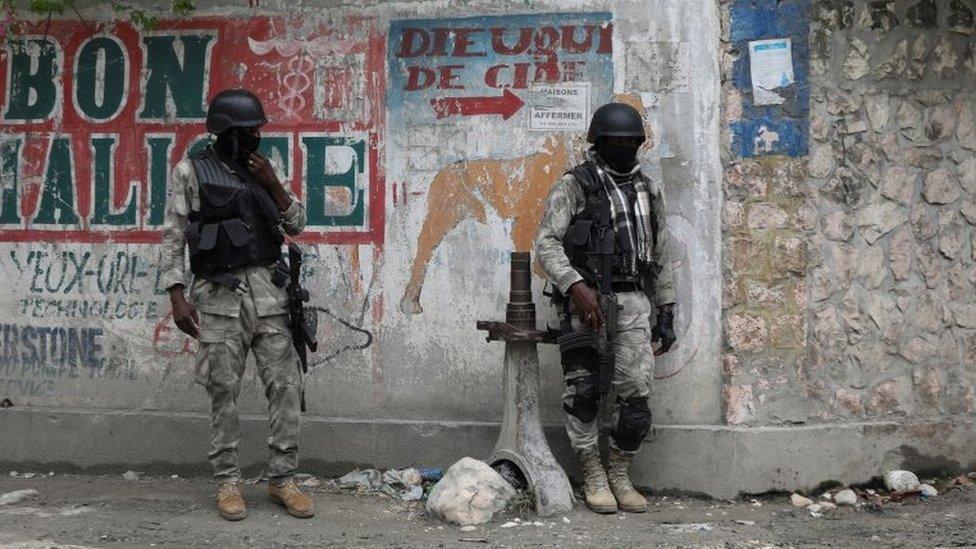
The Haitian police has struggled to contain gang violence
The Dominican Republic has urged Haiti to do everything in its power to ensure the safe release of one of its diplomats who was kidnapped on Friday.
The trade attaché at the Dominican embassy in Port-au-Prince, Carlos Guillén, was seized by gang members while he was travelling to neighbouring Dominican Republic.
Dominican officials said that the 400 Mawozo gang was behind the kidnapping.
The gang is infamous for kidnapping foreigners and demanding high ransoms.
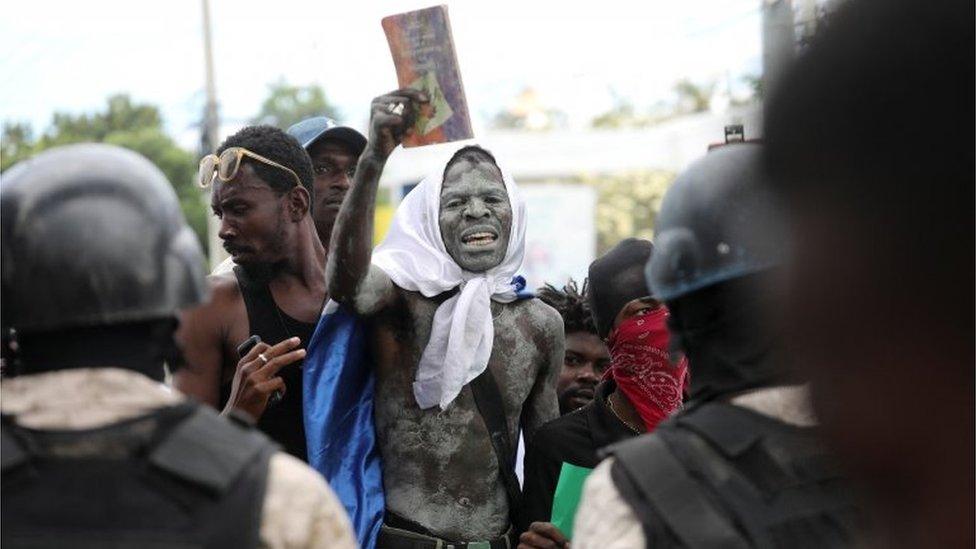
Haitians took to the streets at the end of March to protest against the high levels of crime
In October, 400 Mawozo abducted 16 US citizens and a Canadian who were in Haiti for the NGO Christian Aid Ministries. The gang demanded a ransom of $1m (£795,000) for each of them.
The missionaries and their families all managed to regain their freedom two months later. Christian Aid Ministries said 12 of them had escaped their captors and that five others had been released earlier.
It was not clear if any ransom was paid.
Dominican newspaper Listín Diario said Mr Guillén had been travelling from the Haitian capital, Port-au-Prince, by road to Jimaní, a city across the border in the Dominican Republic, when contact with him was lost.
The Dominican ambassador in Haiti, Faruk Castillo, said his colleague had been kidnapped in the Croix-des-Bouquets area, east of the capital.
Croix-des-Bouquets is the stronghold of 400 Mawozo, which security sources describe as the largest criminal gang in Haiti.
Dominican media published a photo of the kidnapped diplomat and reported that the gang had demanded $500,000 for his release.
Allow X content?
This article contains content provided by X. We ask for your permission before anything is loaded, as they may be using cookies and other technologies. You may want to read X’s cookie policy, external and privacy policy, external before accepting. To view this content choose ‘accept and continue’.

Kidnappings for ransom are thought to be one of the main sources of income for the powerful criminal group.
And while it is the abductions of foreigners which have received much of the media attention, Haitians have been the main victims.
According to Haiti's Center for Analysis and Research on Human Rights, more than 1,200 people were kidnapped in 2021, with only 81 of the victims foreign nationals.
Ten percent of the kidnappings were "collective abductions", where gang members abducted a group of people.
In some instances, armed men have stormed church services and kidnapped clergy in the middle of mass.
Violent crime has worsened in Haiti since the assassination in July of President Jovenel Moïse.
A month ago, thousands of people took to the streets to demand the late president's successor in office, Ariel Henry, do more to combat Haiti's criminal gangs.
Related topics
- Published3 March 2022
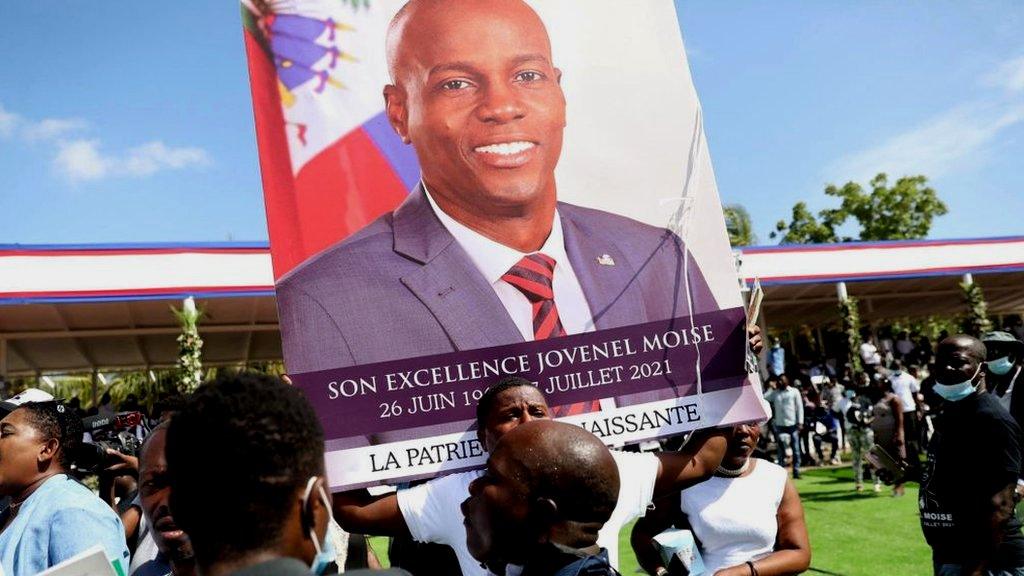
- Published15 January 2022
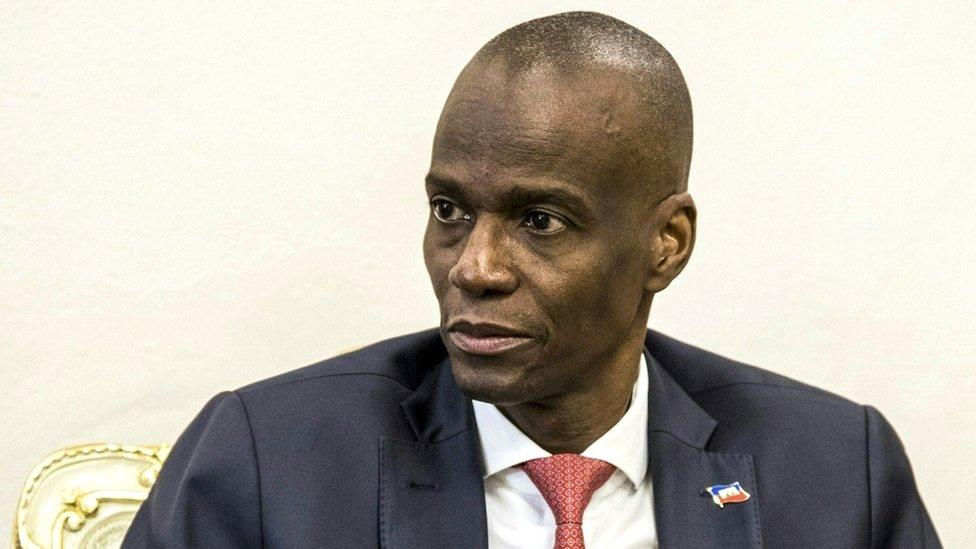
- Published7 January 2022
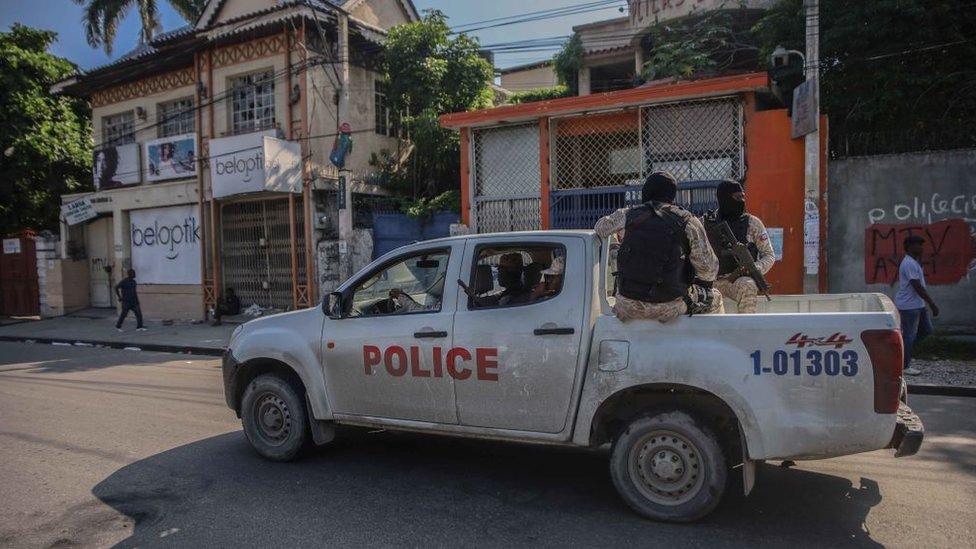
- Published21 October 2021
